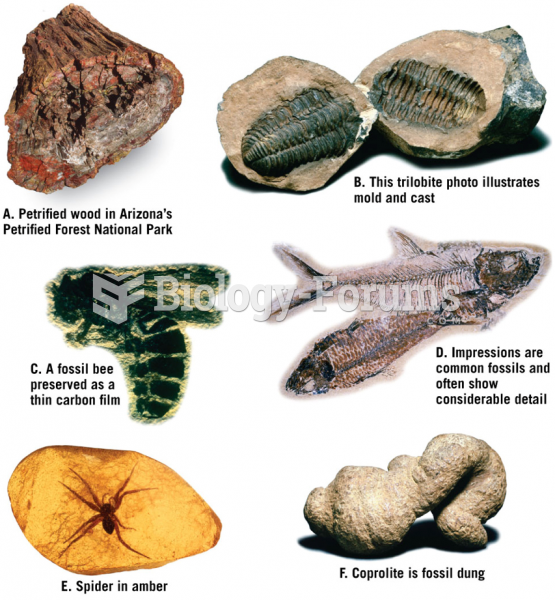|
|
|
Green tea is able to stop the scent of garlic or onion from causing bad breath.
For pediatric patients, intravenous fluids are the most commonly cited products involved in medication errors that are reported to the USP.
Many supplement containers do not even contain what their labels say. There are many documented reports of products containing much less, or more, that what is listed on their labels. They may also contain undisclosed prescription drugs and even contaminants.
The term bacteria was devised in the 19th century by German biologist Ferdinand Cohn. He based it on the Greek word "bakterion" meaning a small rod or staff. Cohn is considered to be the father of modern bacteriology.
Cancer has been around as long as humankind, but only in the second half of the twentieth century did the number of cancer cases explode.







